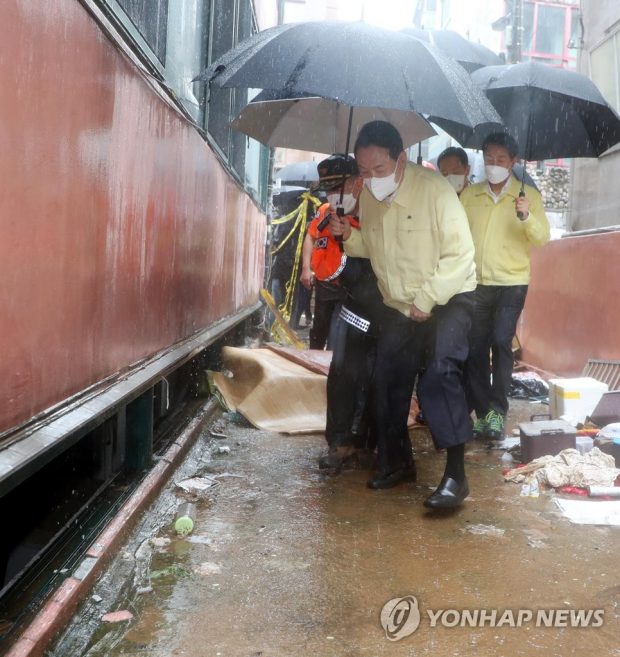
South Korean President: We must respond with worse-than-expected scenarios in mind

SEOUL (Yonhap): South Korea’s President Yoon Suk-yeol apologized to the nation on Wednesday after heavy rains triggered massive flooding in southern Seoul this week and sparked criticism the capital city lacks adequate flood control measures.
Yoon offered the apology during a government meeting on the response to the flooding in Seoul and surrounding areas, which left nine people dead and seven missing.
“I pray for the victims and apologize on behalf of the government to the people who suffered inconveniences,” he said.
The downpours wreaked havoc in and around the capital starting Monday, submerging and stranding vehicles on roads, flooding homes in low-lying areas, and causing hundreds of people to evacuate to local schools and gyms.
Sections of railway and subway lines were suspended during the three-day period, although most restrictions had been lifted by Wednesday morning.
Yoon said the government must come up with fundamental measures to respond to similar events in the future even while carrying out emergency restoration work and assisting victims.
“I believe we need to actively use our cutting-edge digital technologies to constantly monitor water levels in all of the country’s waterways, conduct simulations and thus immediately activate warning systems,” he said.
“Relevant agencies and local governments must build a flood forecast and warning system that covers all waterways, including rivers, main streams and tributaries, and use all of our power to minimize loss of life and property damage,” he said.
Yoon’s comments came a day after he visited a semi-basement apartment in Seoul where three family members, including a woman with a developmental disability, were killed in a flash flood earlier this week.
At a separate government meeting earlier Wednesday, Yoon instructed officials to ensure the weak and the vulnerable are protected against damage from this week’s record rainfall.
He stressed the “infinite responsibility” of the state in protecting its citizens, saying he would like all public officials to bear that duty in mind.
“It’s certainly true that it is abnormal weather, but we can no longer call such abnormal weather abnormal,” Yoon said at the meeting earlier Wednesday, noting that the downpours were the heaviest since weather observations began 115 years ago.
“We could see new record levels at any time,” he said. “This shows that we can no longer respond based on past cases. We must respond with worse-than-expected scenarios in mind.”
YONHAP


